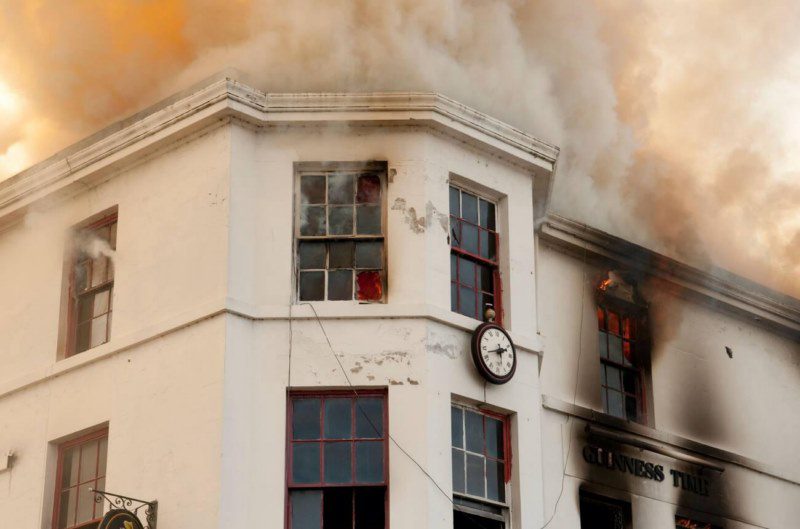Businesses face diverse risks that can lead to major financial losses without adequate safeguards. Commercial insurance refers to specialized policies that protect companies, organizations, and sole proprietors from various threats impacting their operations and bottom line. Instead of entirely self-insuring against risks like property damage, legal liability, employee injuries, or income loss, prudent enterprises transfer these exposures by purchasing “risk transfer” mechanisms called insurance.
Several forms of cover target specific exposures. Customized packages address unique organizational risks, too. However, commercial policies come at substantial recurring costs or premiums, which involve carefully balancing the value of risk mitigation with budget realities. Despite expenses, sufficient and appropriate commercial insurance is an indispensable expense for long-term business resilience.
Property Insurance
Protecting company assets like buildings, equipment
Commercial property insurance provides financial protection for a business’s physical assets like office buildings, warehouses, equipment, machinery, furniture, and inventory in case of damage or outright destruction arising from covered causes of loss known as perils.
Perils covered and additional options
Commercial property policies cover losses stemming from standard perils like fire, lightning, windstorms, hail, explosions, theft, vandalism, etc., while also allowing businesses to add optional protections against more uncommon causes of asset loss like equipment breakdowns or damage during transport.

Factors affecting premium costs
Significant factors impacting the pricing of commercial property premiums include the size, type, and location of the business, the number of assets that need coverage, any unusual risks that assets are exposed to, a company claims history, and the deductibles selected to meet budget considerations.
What are the key types of commercial insurance small businesses need?
Small businesses should, at a minimum, secure general liability insurance protecting against legal claims, property insurance covering business assets, workers’ compensation for employees, and commercial auto covering vehicles used for operations. Optional covers like business interruption, umbrella liability, etc, further mitigate risks.
General Liability Insurance
Shielding from legal liabilities and common lawsuits
Commercial general liability insurance protects businesses from the myriad legal liabilities and common lawsuits that can arise from third-party bodily injuries or property damage that occur due to slip-and-falls on-premises, product defects, inaccurate advertising claims, copyright infringement, and other allegations of negligence, which today’s litigious environment is notorious for.
Type of claims covered by liability policies
Typical claims covered under commercial general liability policies include third-party bodily injury and property damage claims stemming from accidents occurring on the insured business’s premises, injuries or damage caused by products manufactured or sold by the business, and claims arising once projects are completed. Policies can further be enhanced by add-ons like contractual liability coverage.

Importance of sufficient liability limits
With legal judgments in liability cases efficiently running into millions of dollars, securing adequate liability coverage limits that match the worst-case scenarios a business could realistically face is crucial. Limits that seem sufficient during a policy purchase can later prove severely inadequate if involved in an incident prompting massive lawsuits. Hence, procuring ample coverage limits saves enterprises from potentially business-ending losses.
How much commercial insurance coverage should a business buy?
There’s no one-size-fits-all solution, but companies need adequate limits matching worst-case loss scenarios across policies. Conduct risk assessments tallying assets, legal liabilities, accident probabilities, etc, and secure enough insurance to fully cover identified catastrophe scenarios without breaking the bank.
Business Interruption Insurance
Safeguarding revenue streams when operations halted
Business interruption insurance allows companies to protect their revenue streams when critical operations get halted due to covered incidents like fires, storms, or accidents that damage insured properties. These policies provide reimbursements against provable lost income when business activities are interrupted.
Does commercial insurance protect businesses against COVID-19 disruptions?
Standard policies exclude virus-related losses. However, businesses can purchase tailored pandemic-triggered business interruption insurance or contingency policies to help manage temporary revenue declines and extra expenses arising from health disaster scenarios like COVID-19 shutdowns.
Lost income and expenses covered
Typical business interruption policies cover the net income a business would have earned over the period in which operations are suspended following a covered loss event. Some also reimburse extra expenses like temporary relocation costs over and above the lost income. Accurate documentation is critical to securing fair payouts.
Interdependence with other policies
Though business interruption insurance covers income losses when operations cease temporarily, claiming benefits requires the reason for shutdown to stem from physical damage covered under a commercial property policy insuring the business premises and assets. Hence business interruption coverage depends on and complements the property damage policy for effectively protecting against losses.
Commercial Auto Insurance
Insuring vehicles used for business purposes
Commercial auto insurance is tailored to insure any vehicles, fleet, or autonomous cars a business owns, rents, leases, or simply uses for carrying out revenue-generating activities like delivering goods, transporting patrons, or providing contracted on-site services. Personal auto policies may exclude such work-linked usage, making commercial ones necessary.
Typical coverages needed for commercial vehicles
The core protections required for commercial vehicles mirror personal auto covers for meeting third-party liability requirements about bodily injury and property damage. Additionally, policies cover collision and comprehensive damage, vehicle theft, or cargo damage add-ons suitable to a particular usage.
Strategies for optimizing commercial auto premiums
Classifying fleet vehicles accurately by usage traits, designating primary drivers’ risk profiles correctly, installing telematics for driver monitoring, opting for favorable usage-based plans, raising deductibles cautiously, and bundling with other covers via an insurer are vital avenues to optimize commercial auto premium spends based on risk exposure specifics.
Workers Compensation Insurance
State-mandated cover for job-related injuries
Workers compensation insurance is a statutory requirement in most states providing medical, rehabilitation, and wage replacement benefits to employees who suffer job-related illnesses or injuries while working for the insured business as a no-fault compensation system.
Income and medical benefits provided
Besides covering the entire medical costs related to workplace injuries and rehabilitation, workers’ compensation insurance also provides injured employees who remain partially or fully unable to work income benefits amounting to a certain percentage of their average weekly wage payments for supporting themselves financially.
Business costs and risks when lacking workers comp
Businesses declining legally required workers’ compensation insurance face weighty penalty fines from authorities, lose prospects for bidding on government projects, get exposed to costly legal battles pursued by injured workers uncovered by the insurance, besides face the collapse of employee trust and retention rates by refusing this essential staff safeguard.

How can businesses save money on commercial insurance premiums?
Strategies like raising deductibles, installing safety/security measures, improving risk profiles, bundling multiple policies with one insurer, scrutinizing exclusions, asking for lowered rates every few years, comparing quotes periodically, etc, can yield significant long-term savings on premium outlays.
Umbrella Insurance
Extra liability cover above other policy limits
Umbrella insurance delivers a cost-effective additional layer of liability coverage that kicks in once the liability limits of a business’s underlying general insurance, auto insurance, etc., are exhausted in the event of a particularly severe liability award or judgment against the company.
Lawsuits and claims protected against
The supplementary liability protection umbrella insurance shields business owners against outsized lawsuit judgments awarded for bodily injury/property damage claims, advertising injury claims, personal injury allegations, and more not fully covered within primary policies’ liability limits.
Factors to consider when getting an umbrella cover
Key considerations for purchasing adequate umbrella coverage include assessing the business’ vulnerabilities to liability risks, already-held insurance coverages and their limits, level of customer and supplier interactions, product and service risk factors, recent legal environment of the industry, and organizational ability to self-insure specific exposure amounts before needing umbrella cover.
So Exactly, What is Commercial Insurance?
Adequate insurance coverage stands vital for enterprises seeking resilience against the myriad of risks threatening businesses daily. While commercial policies entail substantial recurring costs that must be balanced prudently per unique budgets and risk appetites, sufficient insurance shields companies from potentially catastrophic uncovered losses capable of triggering insolvency events. Appropriate coverage requires carefully weighing factors like asset values, liability exposures, policy types needed, and loss probabilities when designing insurance programs. Rather than adopt makeshift self-insurance strategies, thus risking terminal damage, working closely with experienced insurance agents and brokers to secure optimized policies, staying within premium budgets, yet adequately addressing vulnerabilities, is highly advisable for promoting enterprise longevity. The most resilient companies implement customized risk transfer through adequate commercial insurance.
Who sells and manages commercial insurance policies?
Specialized commercial insurance agents and brokers versed in organizational policies sell and manage customized packages tailored to unique operational exposures. Aligning long-term working relationships with such experts is critical for optimizing coverage and costs.

